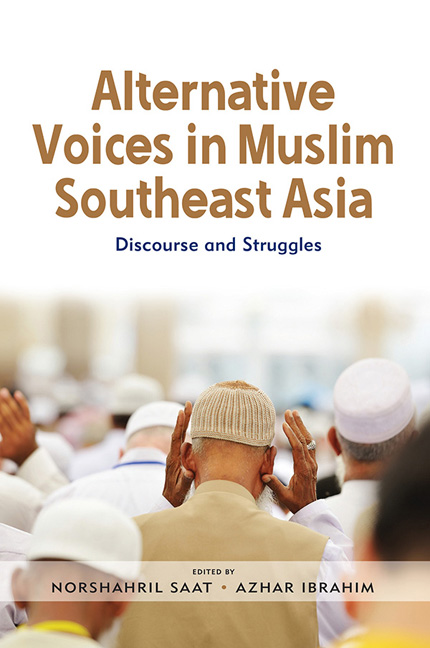3 - Religious Orientations in Contemporary Indonesia
Published online by Cambridge University Press: 02 April 2020
Summary
In the 1960s, Peter L. Berger argued that religion would face serious challenges dealing with modernity. He believed that when confronted with the wave of modernity, religion would steadily but surely decline and be marginalized from public life. He also maintained that the more rational human beings became, the narrower and smaller would be the roles that religion would play in the public sphere.
However, Berger's projection is not in line with contemporary trends. Religion has moved in the opposite direction. There has been a vociferous resurgence of religion in the public sphere. Religious resurgence has emerged in various dimensions and manifestations in many parts of the world. Diana L. Eck observed this phenomenon in the context of the United States. In Europe, religious resurgence not only saw the rise of the Christian right but also of Islamophobia—anti-Muslim sentiments. Geertz Wilders, a former Dutch member of parliament, produced a film, Fitna, that offended many Muslims. Wilders’ movie can be read as part of the anxiety over the Islamic religious resurgence emerging in the Netherlands.
In the same vein, Tariq Ramadan depicted Muslim dynamics in Europe and projected the future of Islam in that continent. His primary concerns were what it means to be a Muslim in Europe and how do European Muslims play their part within the continent's social and political context. He also noted, amongst others, the dynamics of religious resurgence that have implications on Muslim public life.
In short, religious resurgence has become a global phenomenon, and Indonesia has also been feeling its impact. The wave of resurgence and rising religious consciousness has become more visible in recent years. Religious consciousness has come to colour the lives of Indonesians more so than in the past. It is interesting however to see the impact of this rising religious consciousness, especially in the context of political contestation and identity assertion. Generally, this chapter argues that the direction of Muslims’ religious consciousness in Indonesia will manifest and affect the political, economic, ideological and civilizational orientation of the masses.
Political Orientation
When religious resurgence in Muslim circles gets stronger, it becomes more politically appealing. Accordingly, it invites certain political agencies to attempt to utilize religion as a political tool. In this context, politics operates in the name of religion that is a condition of faith.
- Type
- Chapter
- Information
- Alternative Voices in Muslim Southeast AsiaDiscourse and Struggles, pp. 17 - 21Publisher: ISEAS–Yusof Ishak InstitutePrint publication year: 2019



